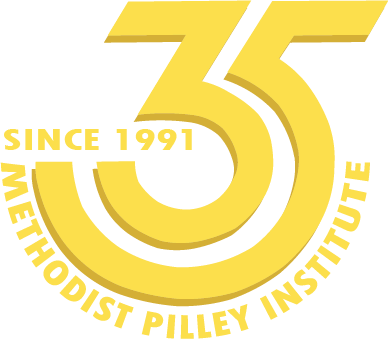|
“In other words, I would probably have just managed the cases based on what I wanted to achieve, rather than focusing on my clients’ wants and needs.
“This is very contradictory to the values of social work. We aim to serve the best interests of our clients,” he said.
Marcius enrolled in the Diploma in Social Work at MPI following a recommendation from his bishop.
He said that in 2022, he resigned as an assistant medical officer to answer a higher calling to become a Catholic priest. Thus, he entered the Catholic seminary after his resignation.
However, after a year in the seminary and through discernment, he decided that becoming a priest was not his calling after all and sought permission from the bishop to leave.
The bishop granted him permission and also offered him a role as a social worker within the church.
“Actually, it was introduced by a priest. I think he was overwhelmed by his work and needed someone to assist him.
“He spoke to the bishop, expressing that he was looking for someone, and the priest suggested me. I went for the interview, and the bishop decided to send me for further studies – the Diploma in Social Work at MPI.
“For now, I am not officially a social worker yet. I am only helping out in the church as a volunteer,” he said, adding that he enrolled in the Diploma in Social Work in 2023.
Since then, he has fallen in love with social work. He said that while his previous role as an assistant medical officer was very straightforward, being a social worker requires more understanding, empathy, analysis, and collaboration with various parties and agencies.
“Social workers do a lot of assessments, and this is something I want to apply when I become a full-time social worker in the future,” he said.
Throughout his studies, Marcius has dealt with several interesting cases such as family problems, teenage pregnancy, drug abuse, elderly care, domestic violence, and so forth.
In all those cases, he learned to collaborate with hospitals, relevant government agencies, and other related parties.
He said dealing with such cases is not easy; in fact, they are much more complex than he initially thought.
However, he found support and guidance from his supervisors and friends. He also received support from his wife, who is a trained nurse.
He said he would discuss certain cases with them while ensuring the confidentiality of the cases.
“These cases are quite common in the hospital setting, but when we talk about social work, the perspective is totally different. We are connecting with families, and we need to explore further.
“In the hospital, it’s like ABC – you know what to do, you conduct a physical assessment, and you administer medication based on the diagnosis.
“In social work, the spectrum is much broader, and so I believe social workers really need to be well-trained because we are in a powerful position.
“All of our decisions matter to our clients. So, I feel that this is a great challenge,” he said.
He explained that assessments involve analysing clients’ development and exploring different tools to support them.
He also said that social work has empowered him to contribute to the community – especially now that he is working with his bishop to empower the elderly.
Marcius said his family has supported him and is happy with his involvement in social work.
“I can see myself as a better person with more insight – someone with a broader perspective and a different worldview,” he said.
He hoped that after earning his diploma, he can work closely with the community, especially within the Catholic community, to empower and uplift their quality of life.
“With more perspective, I can offer more help. So yes, things have changed because of the knowledge I’ve gained. Knowledge is very important for a professional social worker,” he pointed out.
The Diploma in Social Work is a two-and-a-half-year programme accredited by the Malaysian Qualifications Agency (MQA).
It covers three components – knowledge, skills, and values.
Graduates with this certification are not only eligible to work in Malaysia, whether in non-governmental organisations (NGOs) or government agencies, but they also have job opportunities abroad.
Meanwhile, the passing of the long-awaited Social Work Profession Bill has been pending in Parliament since 2010.
The ongoing delay in tabling the bill is said to have hindered the regulation of the profession and the development of the necessary manpower to support the sector.
The Malaysian Association of Social Workers (MASW) and UNICEF have been calling on the government to take swift action to professionalise social work in Malaysia.
Earlier this year, Women, Family and Community Development Minister Datuk Seri Nancy Shukri said the Social Work Profession Bill will likely be tabled in Parliament in July.
|
